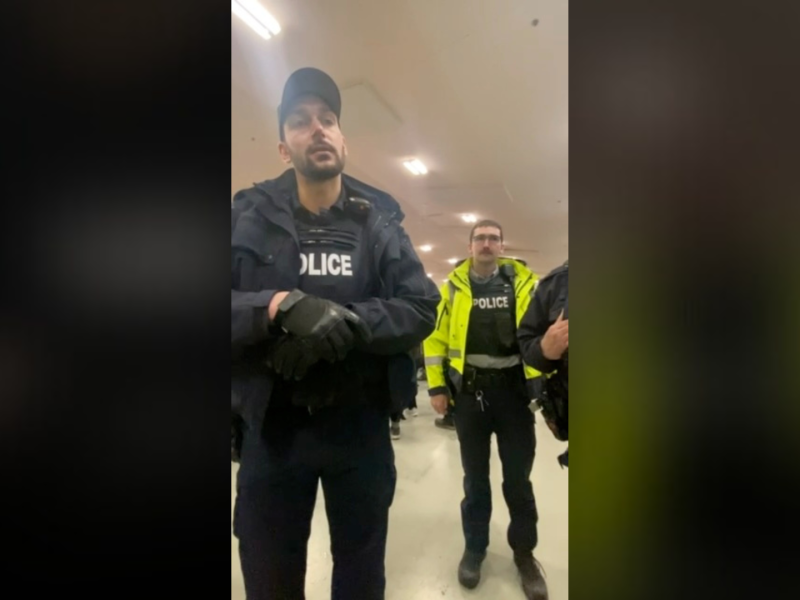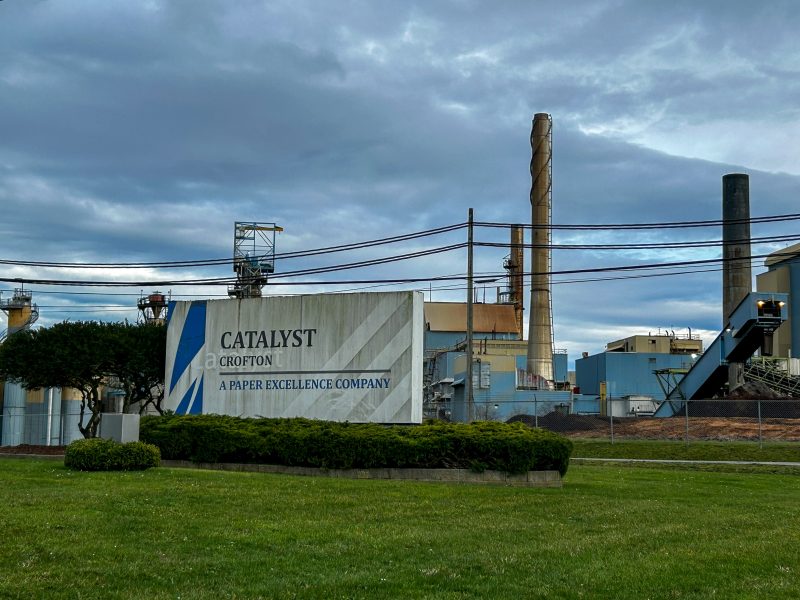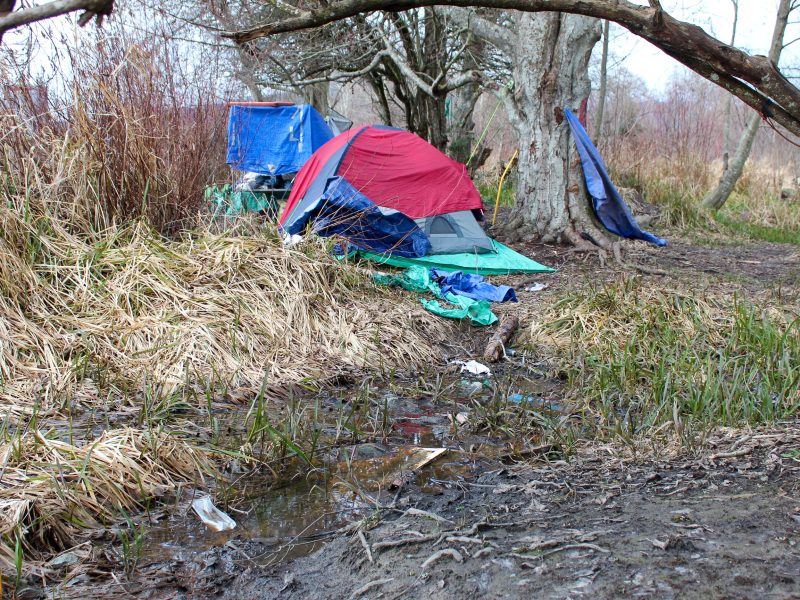
On a chilly spring Saturday, a little more than a dozen community members gathered at Duncan’s Kin Park to share some laughs, dance and learn about an innovative method to grow food in small spaces.
Cowichan Intercultural Society and Victoria-based IYÉ Creative hosted a workshop to help folks connect with the land, themselves and each other through the act of planting and growing food.
Led by Ariel Reyes Antuan of IYÉ Creative, those in attendance learned how to build vertical gardening systems in biodegradable burlap sacks — a traditional growing method developed in Africa.
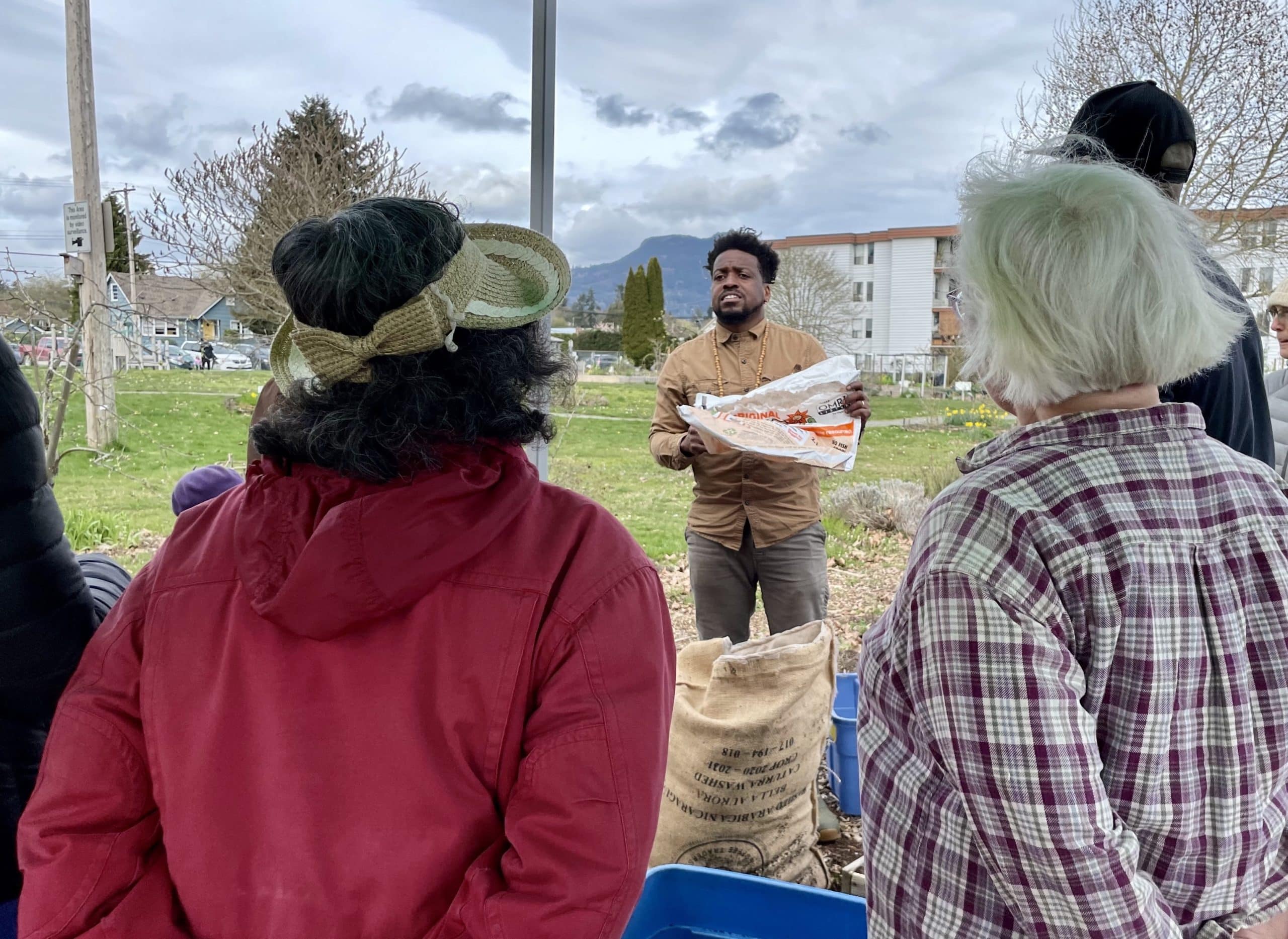
This event had been in the works since late last summer, according to Cowichan Intercultural Society employment specialist Paulina Kee. She began working with CIS in January, but took over planning the event from the woman who was previously in her position with the organization.
“This wasn’t necessarily to get people to become farmers, but to inspire people to get outside, grow their own food and get into gardening,” Kee says. “For me that rolls into appreciating where your food comes from and knowing what it takes for farmers to grow food.”
IYÉ Creative is a grassroots collective that teaches people how to grow their own food and supports community members by connecting them with small-scale, local farmers who deliver them food. The organization focuses on supporting people from disenfranchised communities to help restore their relationships with the land they live on. Through the use of food, culture and Indigenous knowledge systems, the group seeks to strengthen community and empower the people within it to heal and grow in tandem with the people and land around them.
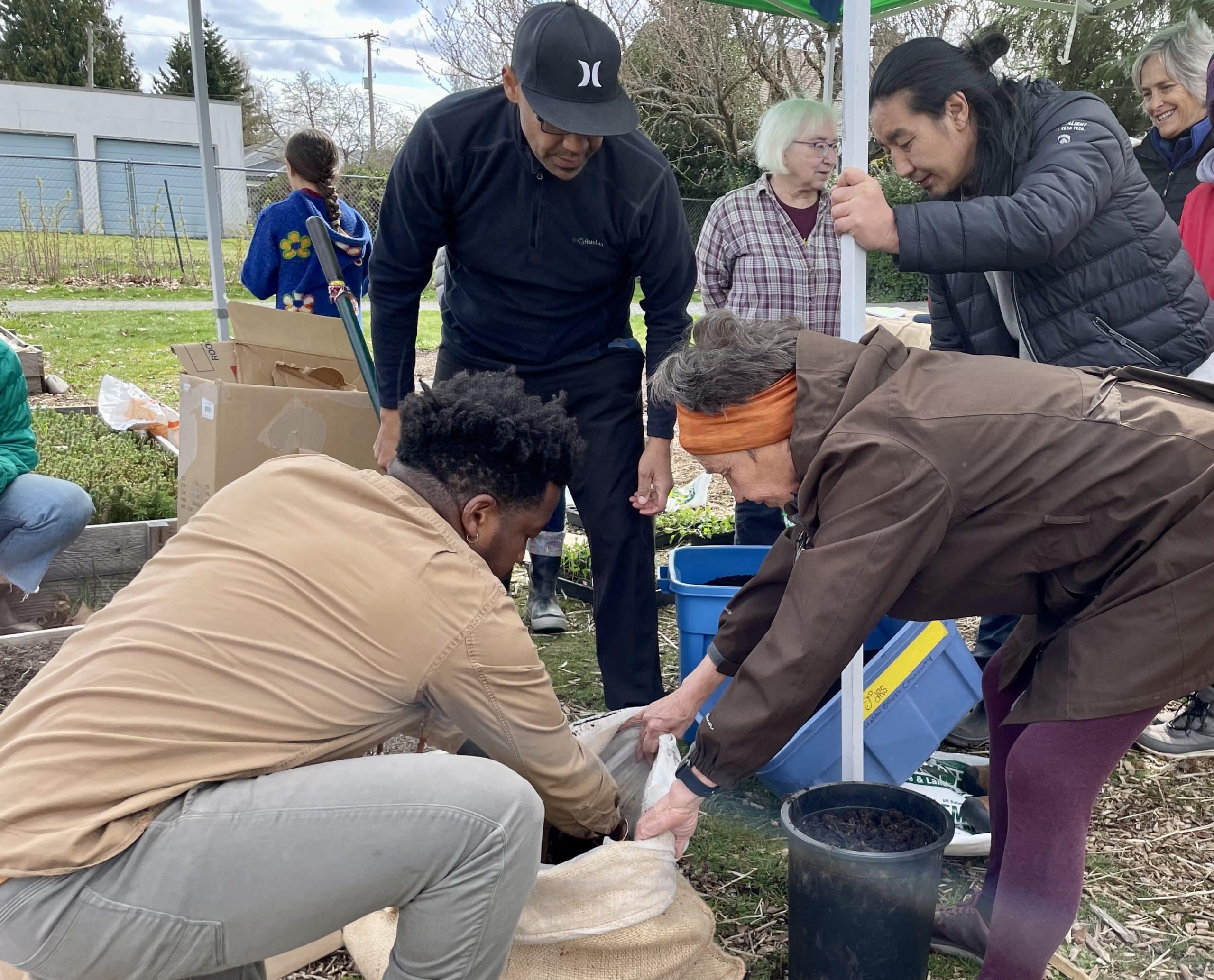
Inspired by the work being done by REFARMERS in Vancouver, IYÉ Creative started Palenke Greens — a program that helps racialized and marginalized community members in Greater Victoria grow food in small spaces. They do this by installing tall burlap sack gardens, filled with soil and plants growing out of the top and sides of the gardens. The gardens — which can be installed on balconies, patios or in yards — are able to produce a substantial amount of food without taking up too much space. Since 2020, the group has installed more than 90 burlap sack gardens for residents in the Capital Regional District.
Related story: This group is tackling food insecurity one urban garden at a time
“I’m not a Knowledge Keeper,” Reyes Antuan said at the workshop. “I’m just sharing what I know and what was given to me.”
Kee says she was excited to learn about Reyes Antuan and the work IYÉ Creative has been doing, noting that there is so much to learn about connecting to the land and honouring stewardship practices of Indigenous people who have lived here for millenia.
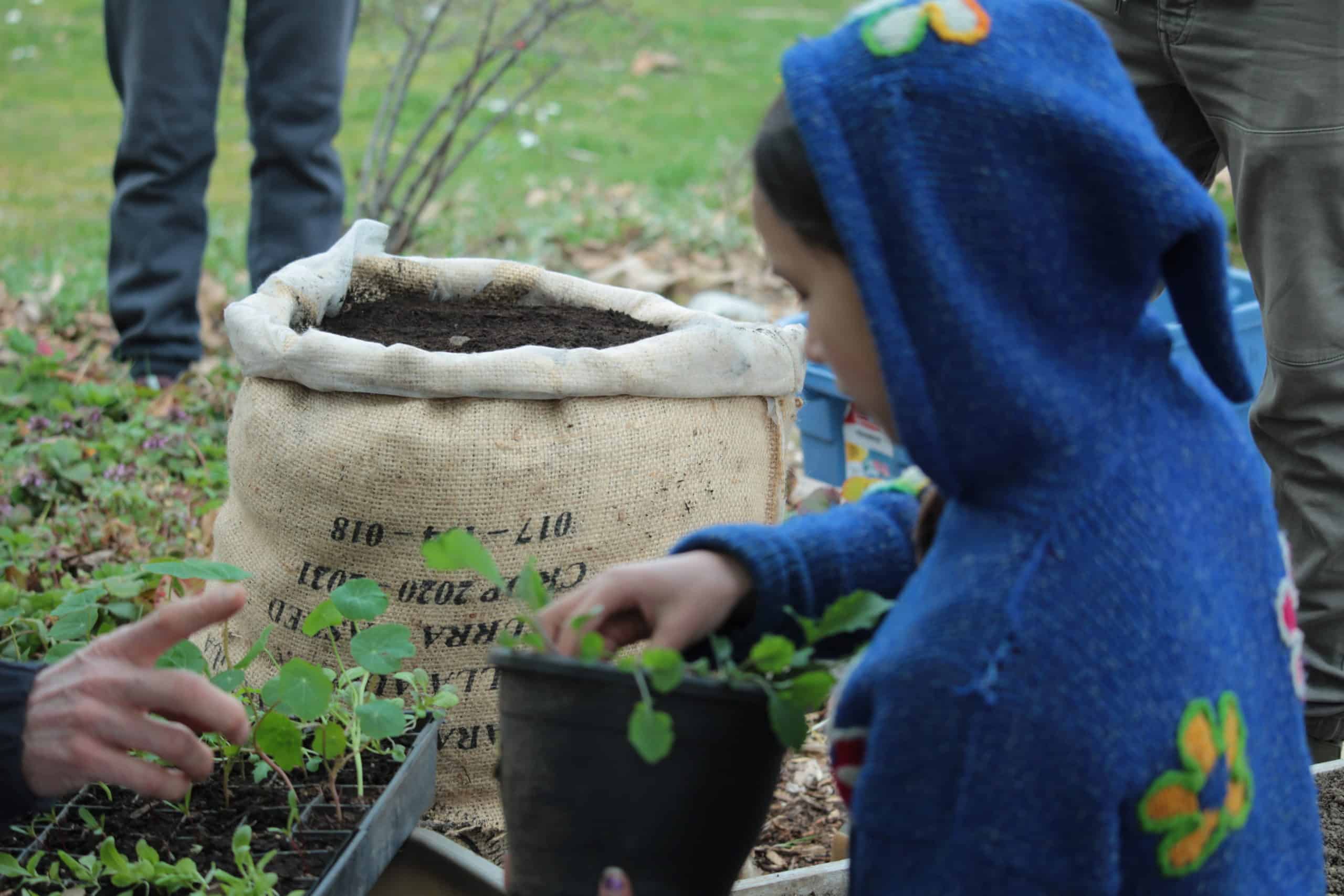
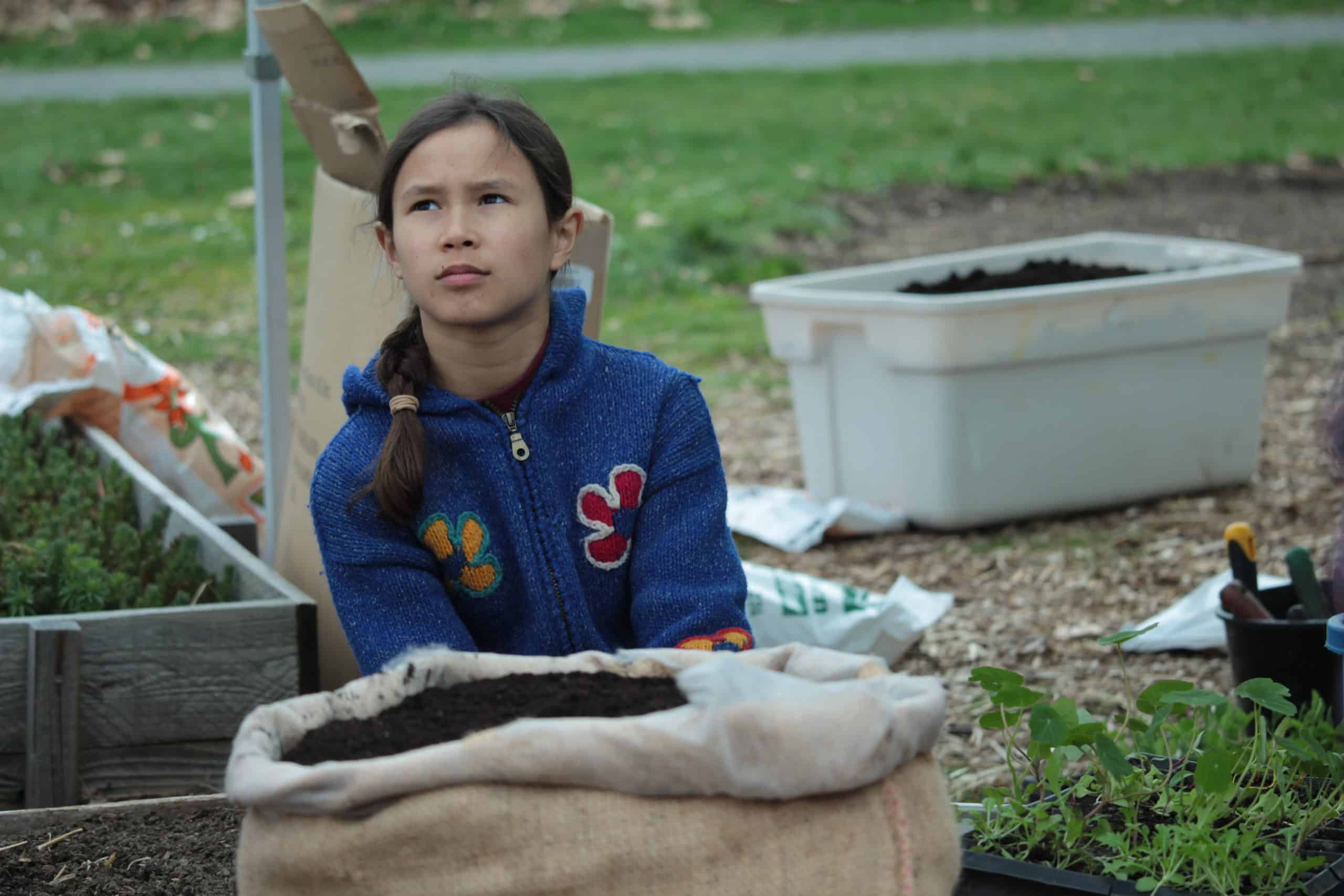

Drawing from her own experience, Kee says she thinks many people are on a journey to reconnect with the land and to honour Indigenous wisdom — especially at a time when land ownership is often viewed as a means to develop, rather than grow food and nurture the environment. She says thinking about where her food comes from and the journey it takes to get to her has made her more compassionate to all living things, including other human beings. It saddens her to see how many people are disconnected from their food because they’re forced to buy it from supermarkets in urban areas.
“There’s wealth and abundance that comes with food. Anyone who has access to sun and water and land deserves to be able to grow their own food,” Kee says. “It feels so good to naturally plant something and watch it grow.”
Cowichan Intercultural Society supports and welcomes newcomers to the Cowichan Valley by helping them integrate into their new community with services like English language classes, employment support and more. The organization also works to uplift the Cowichan Valley community to embrace newcomers and the diversity they bring.
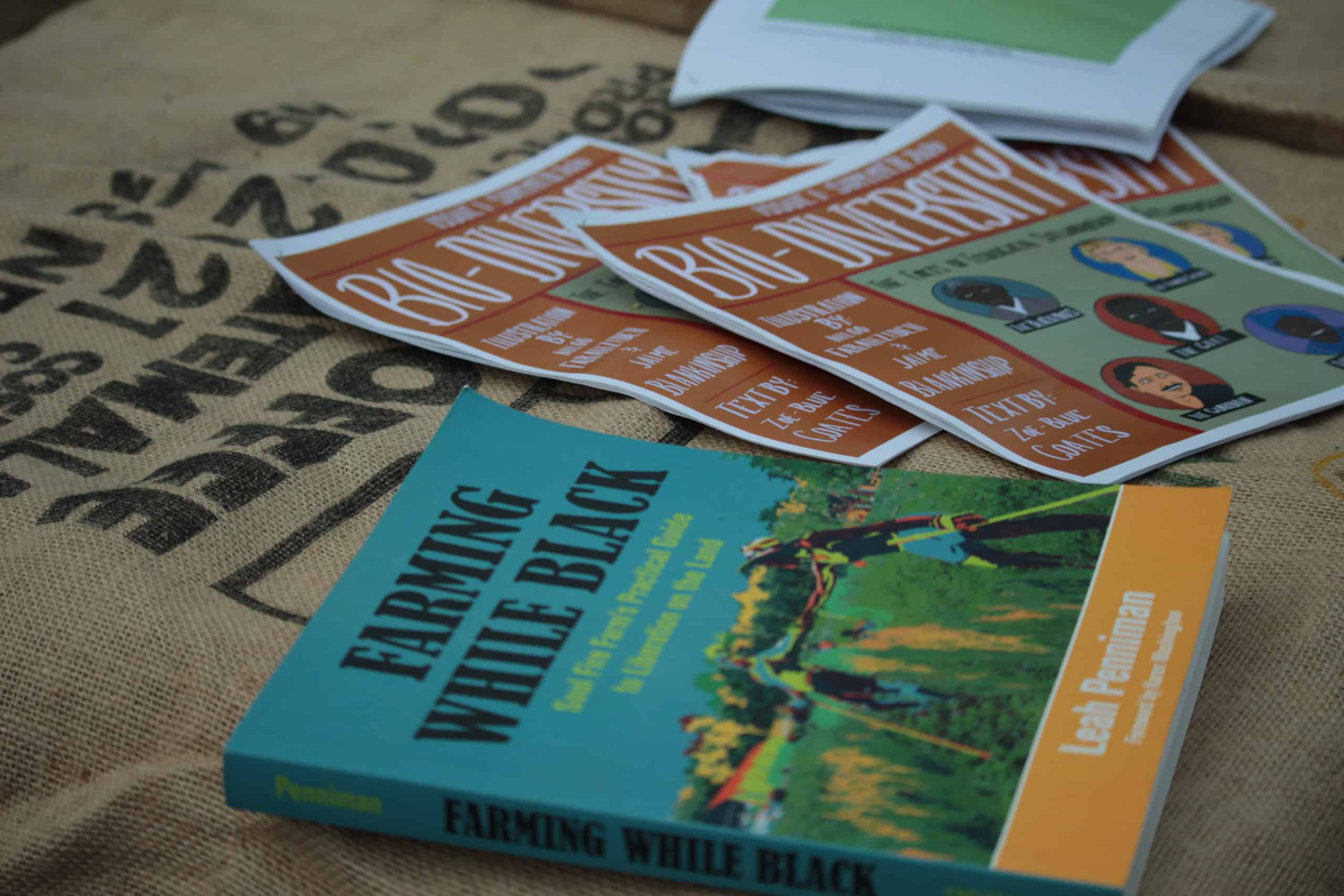
Kee says many newcomers to the Cowichan Valley come from farming families and notice that the food in grocery stores isn’t always fresh or is in plastic. She says we have things to learn from them about how to take care of the land and grow food. And while not everyone has land to grow their own food, the Palenke Greens gardens help bridge that gap.
“It’s empowering to give newcomers the tools to grow their own food,” Kee says. “It’s food sovereignty and freedom. Everybody deserves to eat quality food … Palenke is amazing because they figured it out. This is how we’re going to grow food without land or farms.”
Related story: COVID-19 peels back the curtain on food insecurity on Vancouver Island



Those who attended the Palenke workshop in Duncan came from different backgrounds and lived experiences and were able to celebrate that as they connected over the course of the afternoon. They dug their hands into the soil together to build their own mini burlap sack gardens and lent a helping hand to those who needed it. The seeds of community building were also being planted for the youth and children who attended the workshop with their parents.
At one point in the afternoon, Reyes Antuan led a dance circle sharing some moves from Cuba — where he’s from — and others jumped in with their own dance moves, too. The energy was infectious as smiles and laughter spread amongst the group.

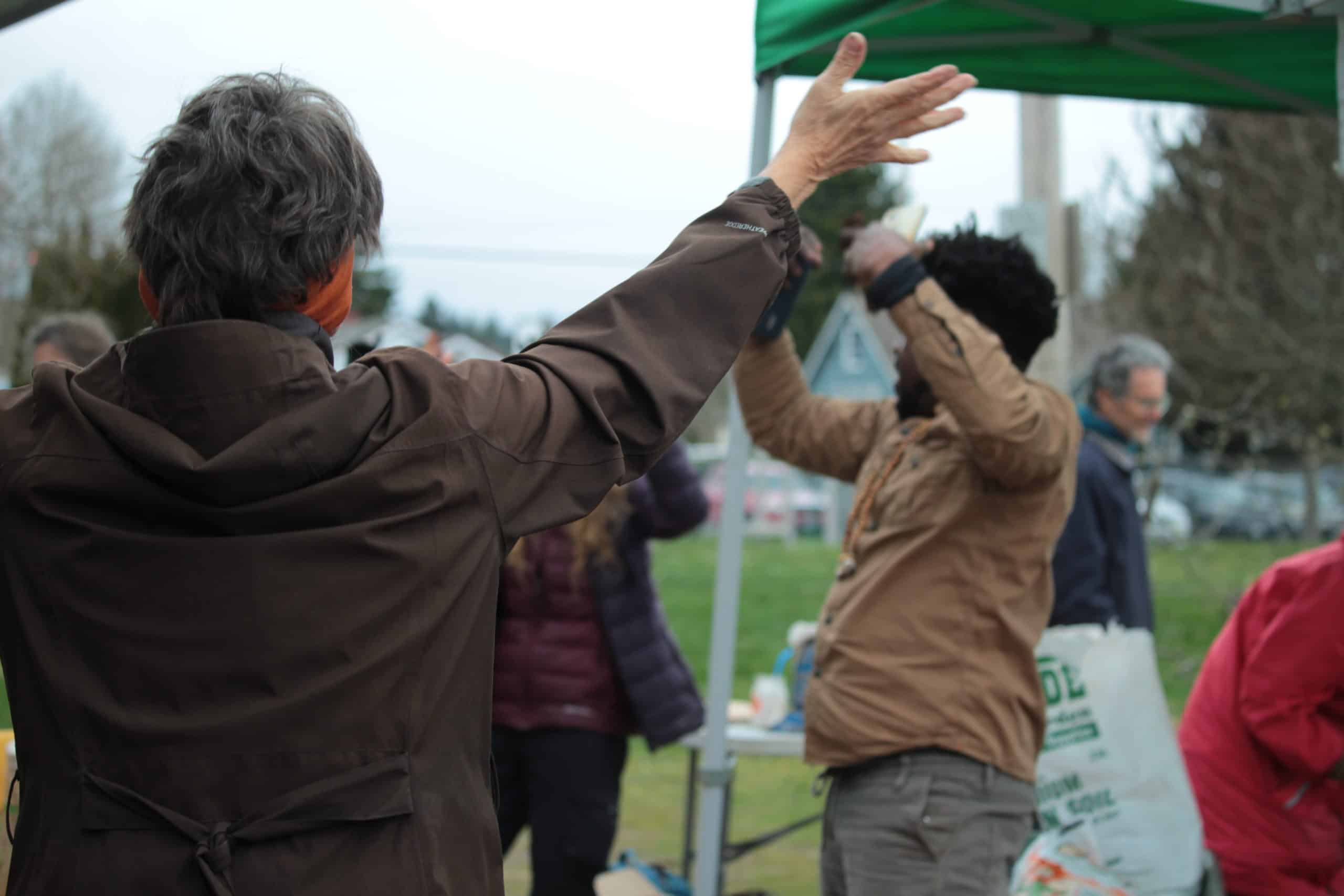

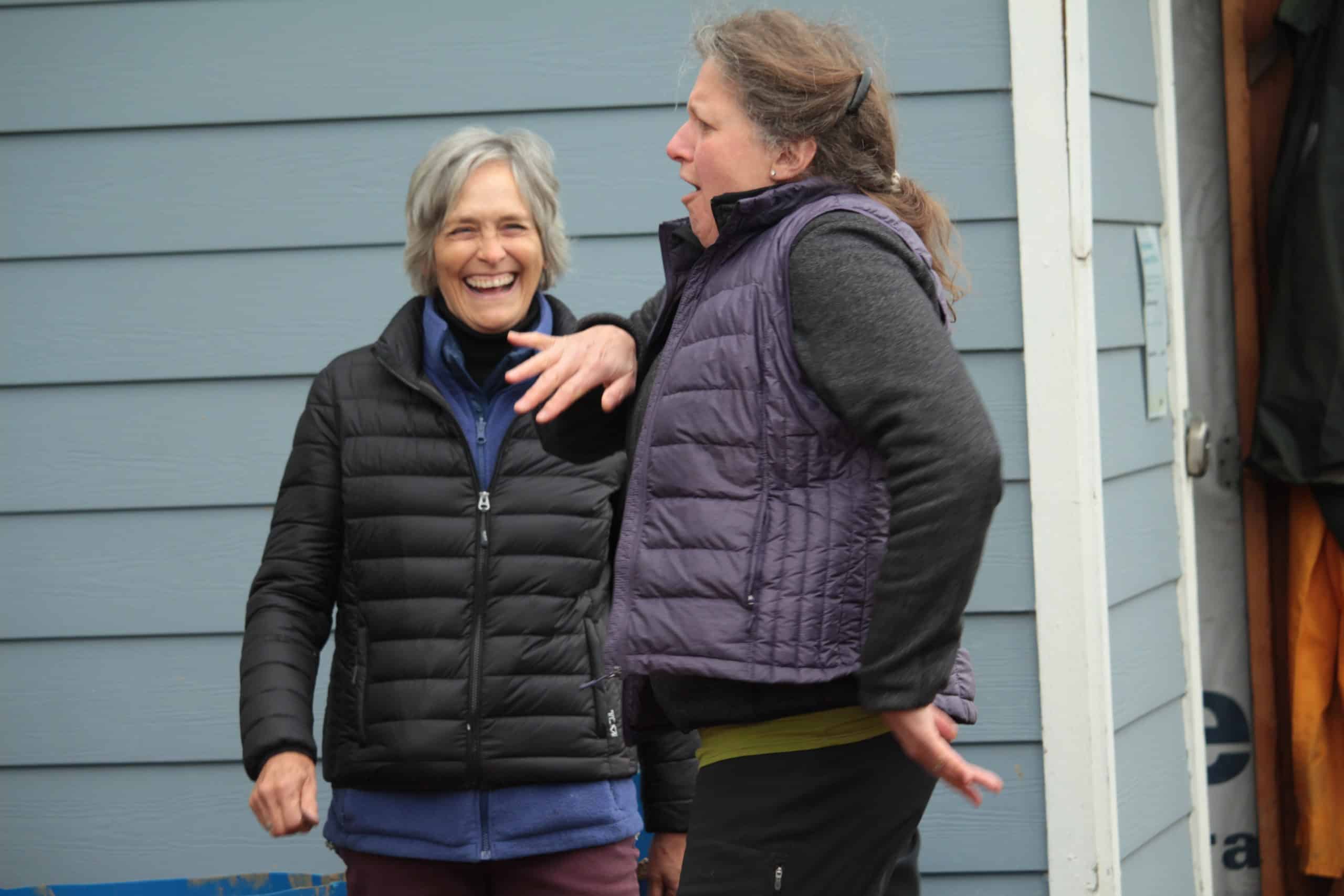
After the dancing came to a close, attendees put finishing touches on their mini burlap sack gardens before taking them home to watch them grow.
At the workshop, Reyes Antuan stressed the importance of connecting and engaging with others in an authentic way. He said it offers opportunities for understanding, community building and recognizing the connection between humans and the environment.
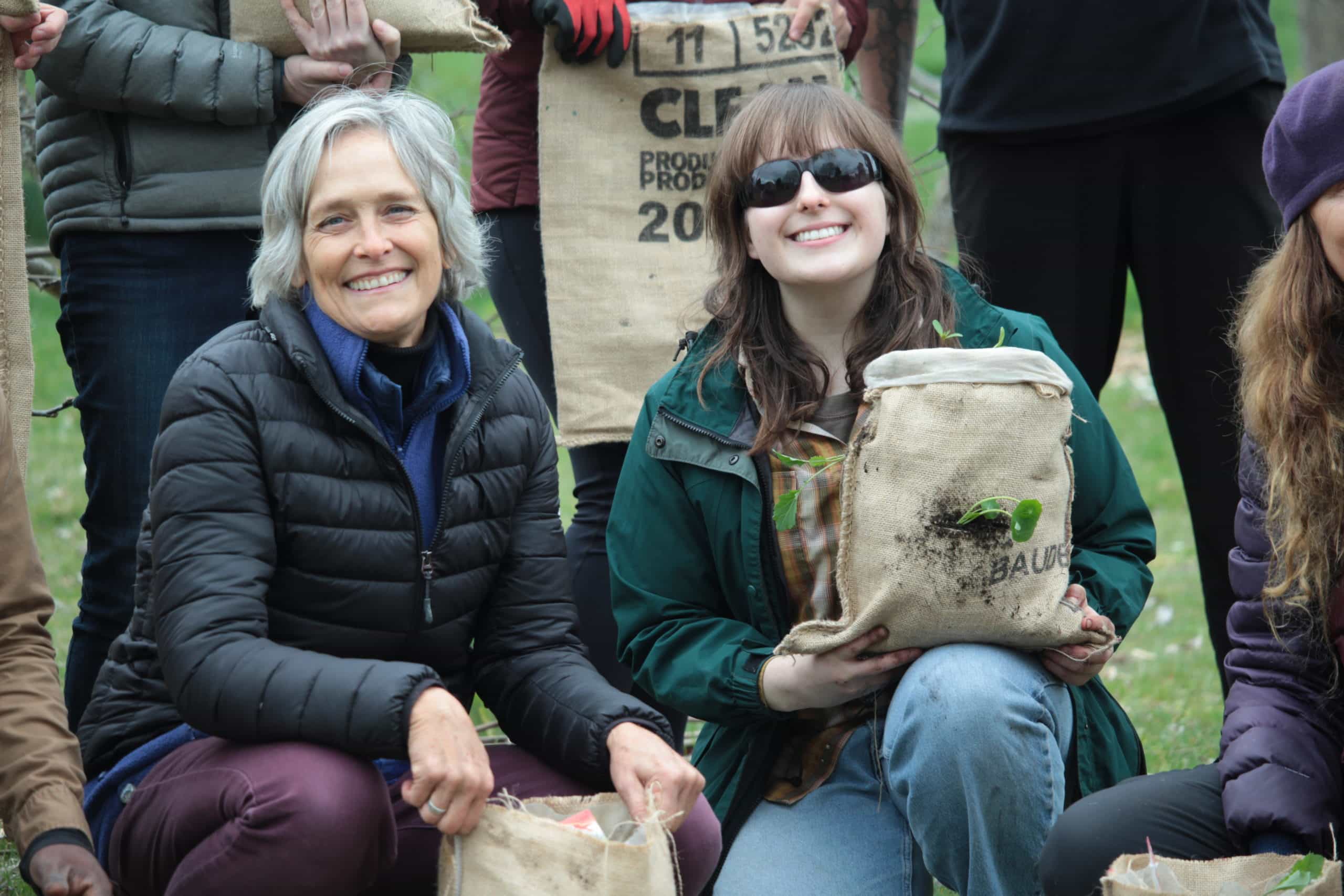
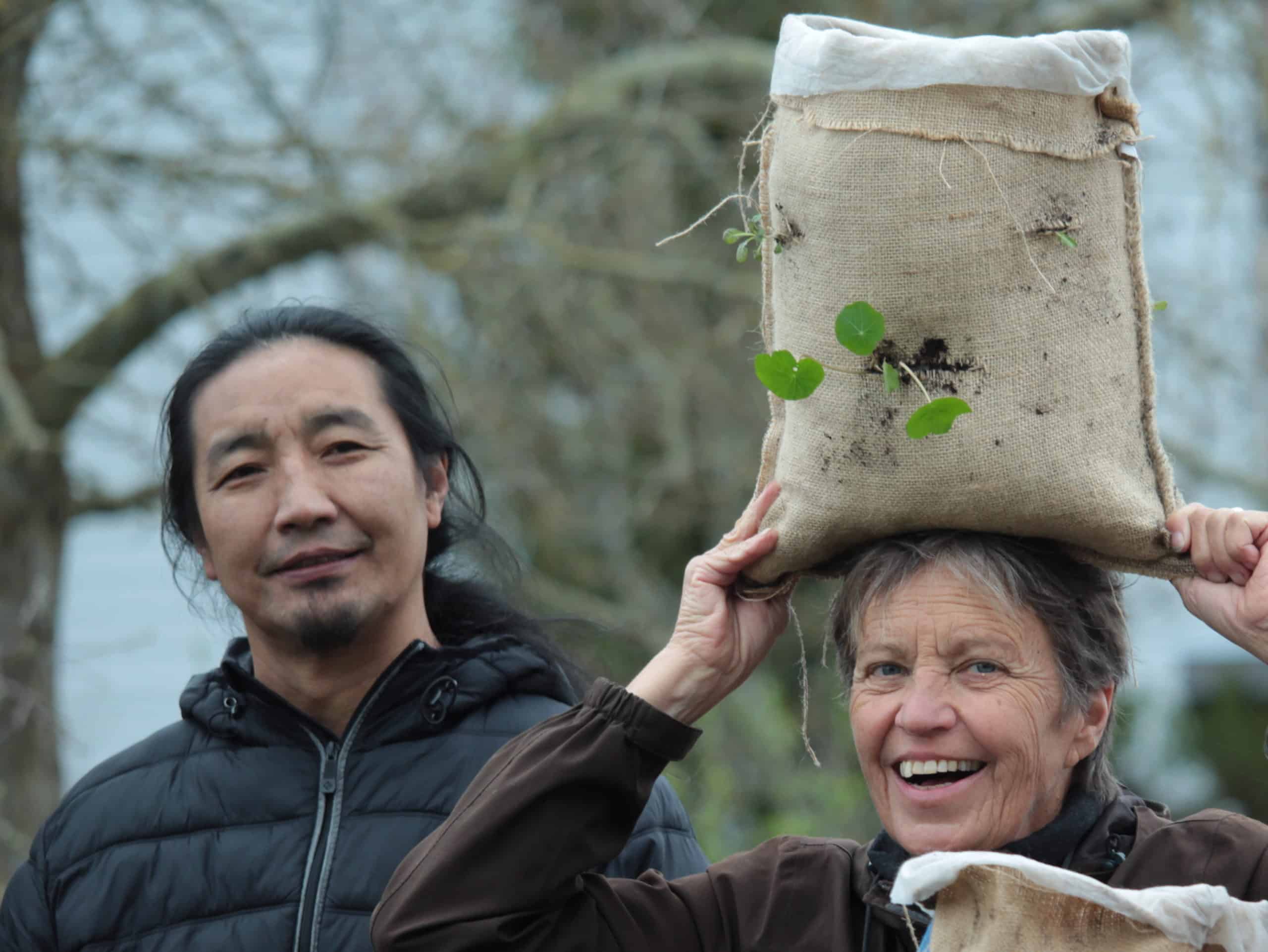
“Food is a human right and food is sacred and food was a gift from the creators,” Reyes Antuan said at the workshop. “Good food is a human right and we need to keep pushing so everyone can have access to it.” [end]

